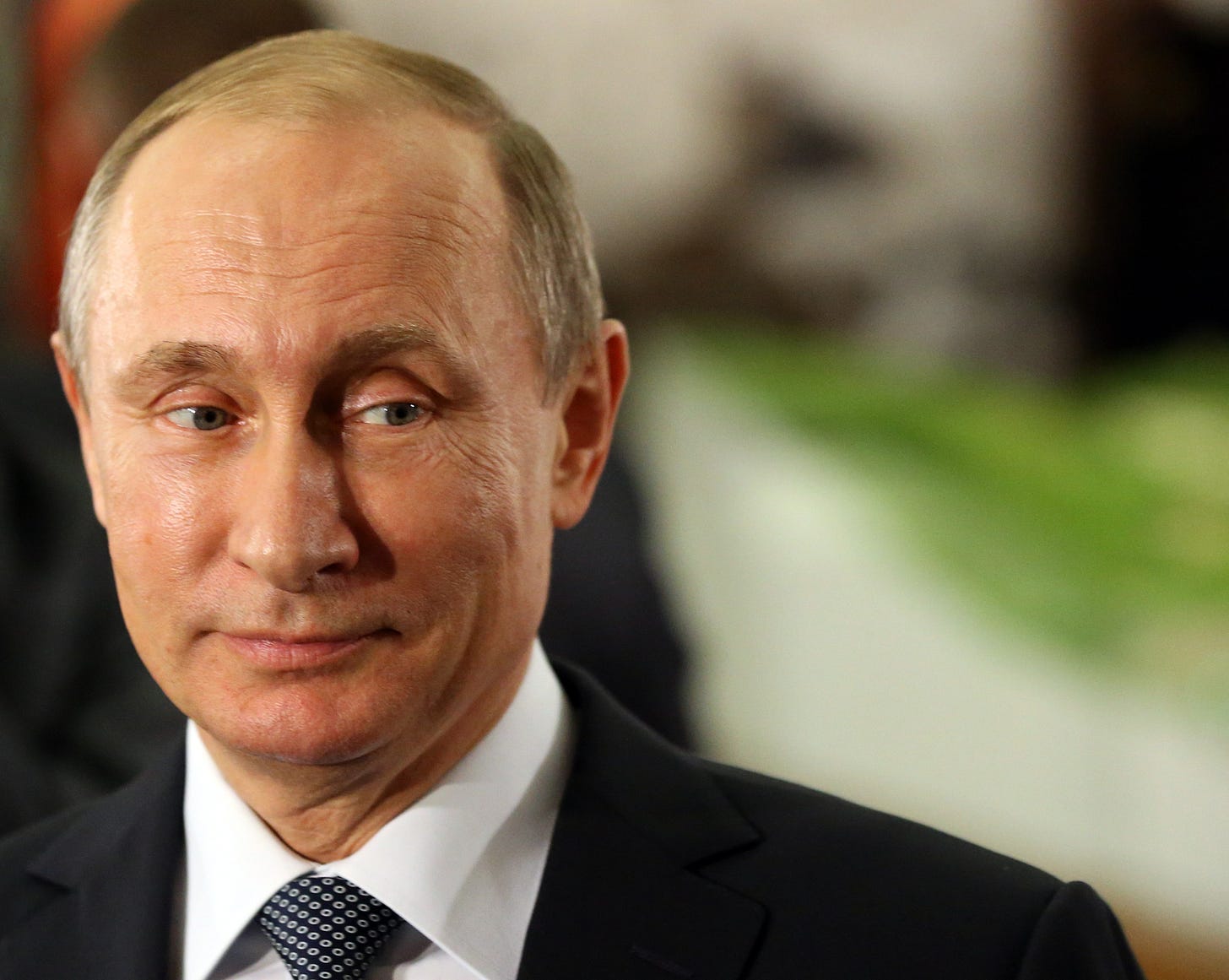Escalating tensions and complex dynamics defining East-West relations, and the push by some Western nations to delegitimise Russian President Vladimir Putin's leadership, reveals a misunderstanding of Russian political culture and smacks of desperation.
NATO and the US have been desperate to counter the failings of a proxy war they’ve waged against Russia since 2014.
As far back as 2005-2006, NATO and the US have worked to undermine Putin and Russia. What is a last-ditch means stemming from a long-standing but unsuccessful attempt to weaken Putin's hold on power, has now dangerously coalesced around the conflict in Ukraine, leveraging it as a geopolitical tool in a way that exacerbates the situation rather than contributing to its resolution.
The war in Ukraine has always been about deposing Putin and nothing more. For NATO and the US, Putin was not the compliant type.
Sending in economic hit men as the US began to do from the 70’s to coerce and manipulate governments to enforce imperial rule and take over their economies, was never going to work.
Putin was no Mikhail Gorbachev or Boris Yeltsin. Putin has always been a true patriot -with Russia first.
The situation in Ukraine, far from being an isolated regional conflict, has been thrust into the spotlight of global geopolitics, becoming a focal point for Western efforts to challenge and destabilize Putin's Russia.
This strategy, however, betrays a profound miscalculation. Rather than isolating Putin or diminishing his support at home, the ongoing crisis has reinforced the narrative of a Russia besieged by hostile forces, rallying domestic support and strengthening his leadership.
Furthermore, it highlights a fundamental misreading of the Russian public's sentiment and the country's historical relationship with its neighbors.
Russia is no longer the Soviet Union, and contrary to the misguided belief by the West, or the narrative it knowingly peddles but is untrue, Putin has no desire to rebuild the Soviet Union.
For Russia, Putin well understands returning to the days of the USSR would be both economically and geopolitically disastrous. Economic, cultural, and political progression and the advancement of the Russian people is what Putin is focused on and committed to make happen.
The portrayal of the conflict in Ukraine as merely a stage for Russian aggression neglects the deep-seated historical, cultural, and political complexities that define the region.
By simplifying these dynamics into a binary of aggressor and victim, Western policy fails to grasp the nuanced reality on the ground, reducing the chances for a diplomatic and peaceful resolution.
Running the narrative of delegitimising Putin's presidency as a response to the situation in Ukraine reflects more than a policy stance; it reveals a palpable sense of frustration and desperation within the corridors of NATO and the US.
What NATO and the US thought would be a fait accompli have been unable to sway the course of events or to meaningfully impact Putin's standing through diplomatic pressure or economic sanctions.
The calls of delegitimisation appear as the last resort of governments grappling with the limits of their influence - a strategy, born out of a failure to engage Russia constructively, risks entrenching divisions and foreclosing opportunities for cooperation on broader issues of mutual concern.
What’s required is a re-evaluation of the West’s strategies towards Russia and the war in Ukraine. Shifting from a position of confrontation to constructive engagement is a greater imperative.
Recognizing the legitimate security concerns and interests of all parties, including Russia, should be the first step toward de-escalation. Diplomacy and a genuine commitment to understanding the other's perspective are essential parts of a strategy that seeks not just to manage the crisis but to resolve it in a way that respects the sovereignty and aspirations of everybody.
The West’s push to declare Putin's rule illegitimate, particularly in the context of the Ukraine conflict, not only misreads the politics within Russia but also betrays a strategic desperation.
Rather than contributing to a resolution, it only serves to harden political stances and diminish the prospects for peace.
Inevitably, it will be a more constructive engagement with Russia, acknowledging the legitimate concerns and aspirations of all parties, being the only path toward a stable and secure regional order.





Well said.
I would not hold my breath waiting for the US or NATO to develop a more "constructive emgagement" with Russia. The US is concerned with maintaining their power. They want to remain "empire". They are not concerned about constructive engagement with anyone if it might mean that American "democracy" might be diminished.